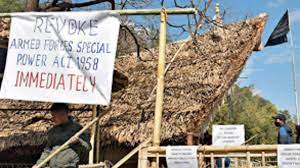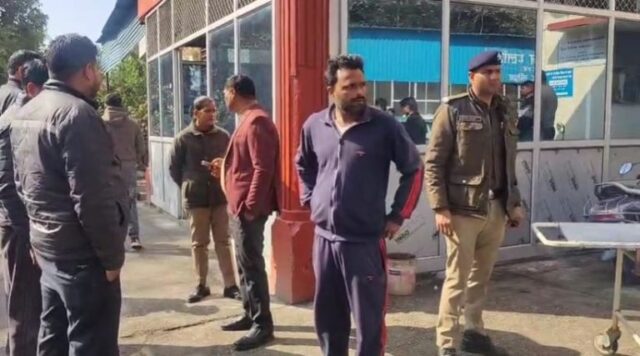Demand for withdrawal of AFSPA arose after killing of innocent civilians in Nagaland

After the death of 14 civilians in the firing by security forces in Nagaland, once again the demand for withdrawal of Armed Forces (Special Powers) Act, 1958 has gained momentum. It is alleged that this law is violating the human rights of the citizens and there have been allegations of torture on the army personnel. The Armed Forces Special Power Act was implemented in many states of the Northeast, but this law was withdrawn from some states. Actually, this law was implemented to deal with rebel and extremist organizations in these states.
Why was AFSPA created?
In the note available on the website of the Union Home Ministry regarding AFSPA, it was told that, this law was made in the year 1958. In fact, in the northeastern states of the country, the state governments and local administration were found unable to deal with the violence and instability in the state. It has been written in this note that violence has become a part of life in the northeastern states. To counter this violence, this law was brought in which privileges were given to the army to act in violence-affected areas.
This law was first brought by an ordinance in May 1958, then later it was passed by both the Houses of Parliament, Lok Sabha and Rajya Sabha, and in September 1958, this law got the assent of the President. It was known by the Armed Forces Special Powers Act, 1958. Initially, this law was made keeping in mind the situation in Arunachal Pradesh, Assam, Manipur, Meghalaya, Mizoram, Nagaland and Tripura, but over time this law was amended and AFSPA was removed from some states.
Human Rights Watch, a human rights organization, says that the Armed Forces Special Powers Act is based on the lines of an ordinance brought in to suppress the independence movement during the British era. Although initially the purpose of this law was to curb the violence of Naga insurgents, but after amendment in 1972, this law was implemented in 7 other states of Northeast as well. At the same time, from 1985 to 1994, this law was imposed to deal with Punjab Khalistani insurgents and in 1990 it was implemented in Jammu and Kashmir.






